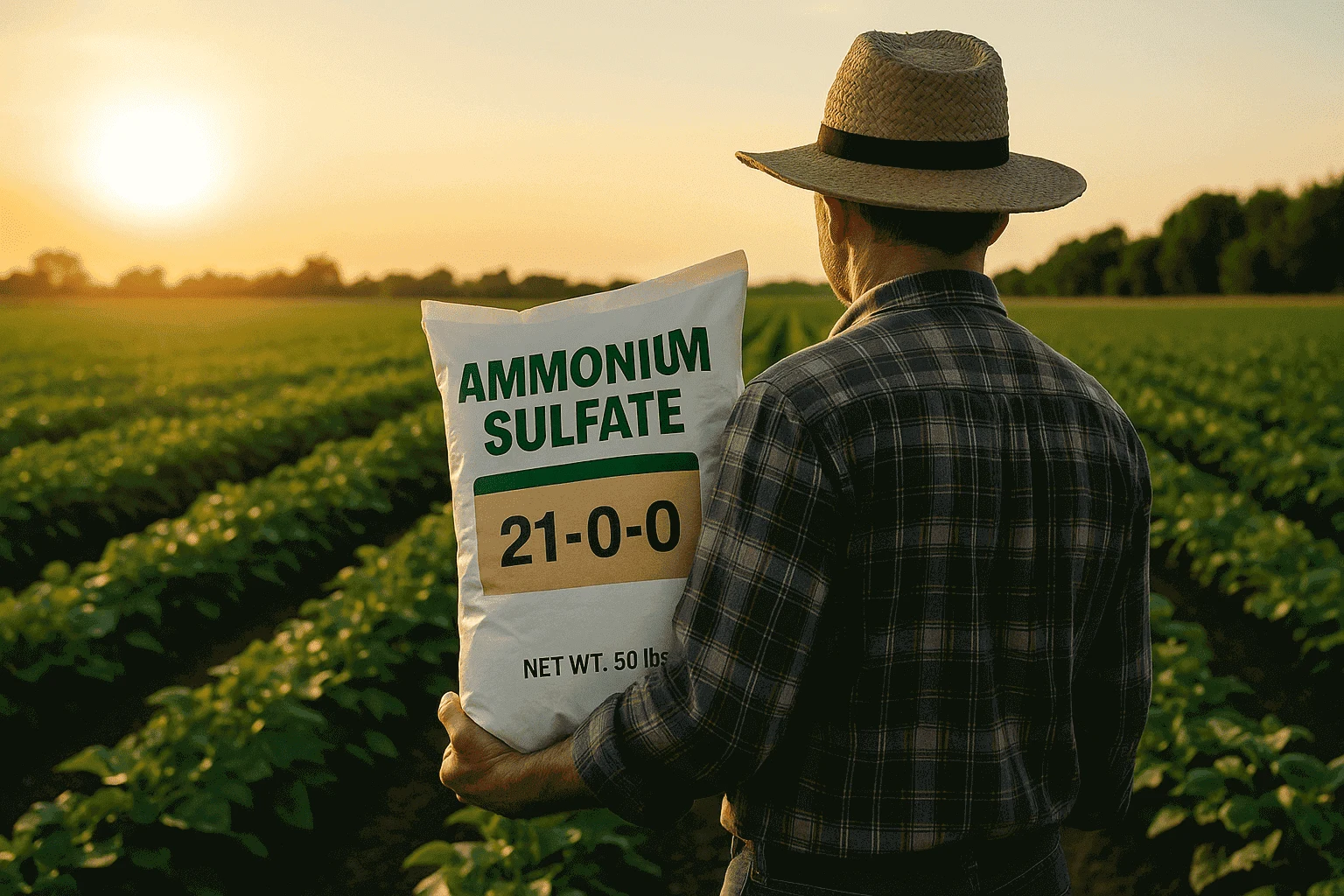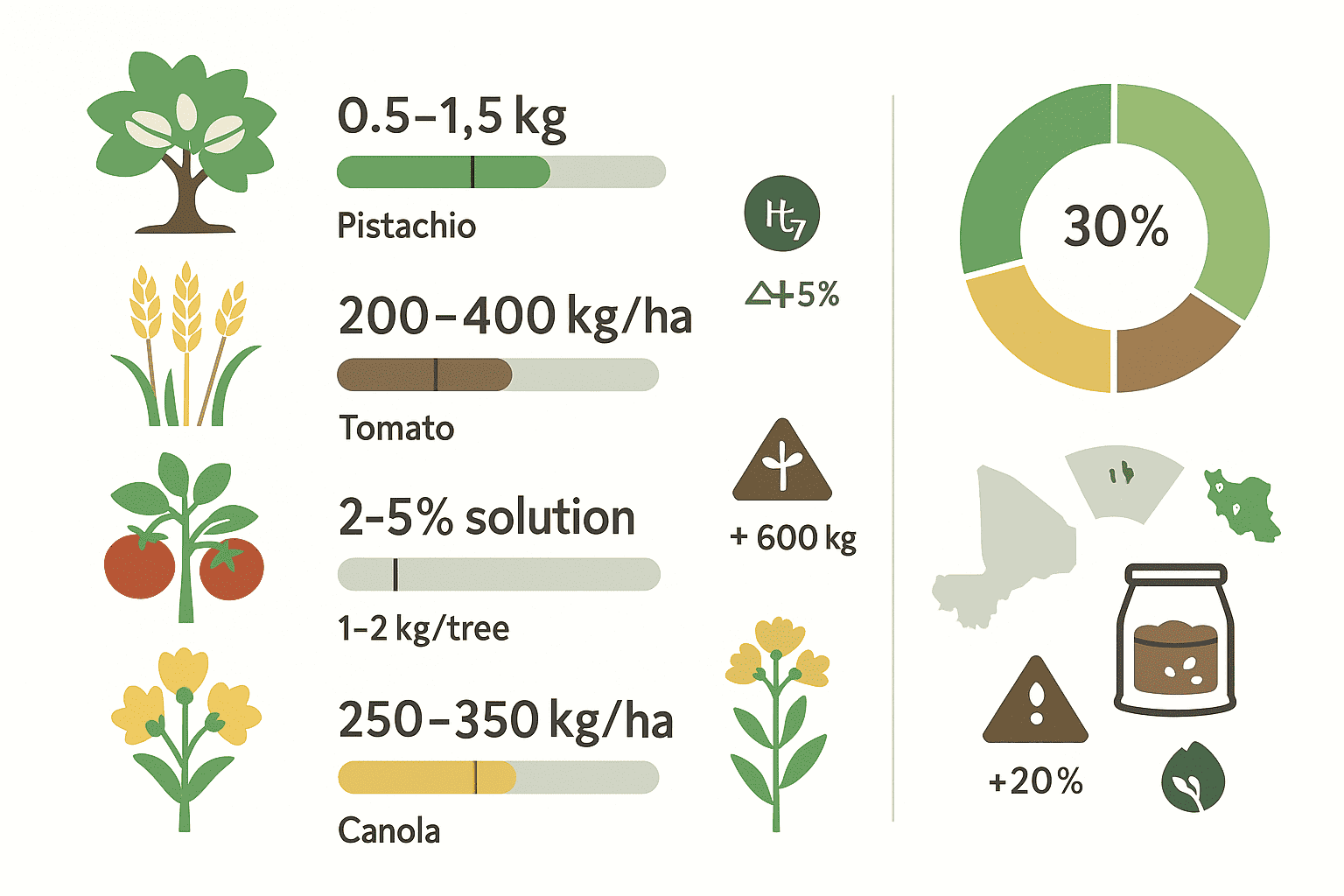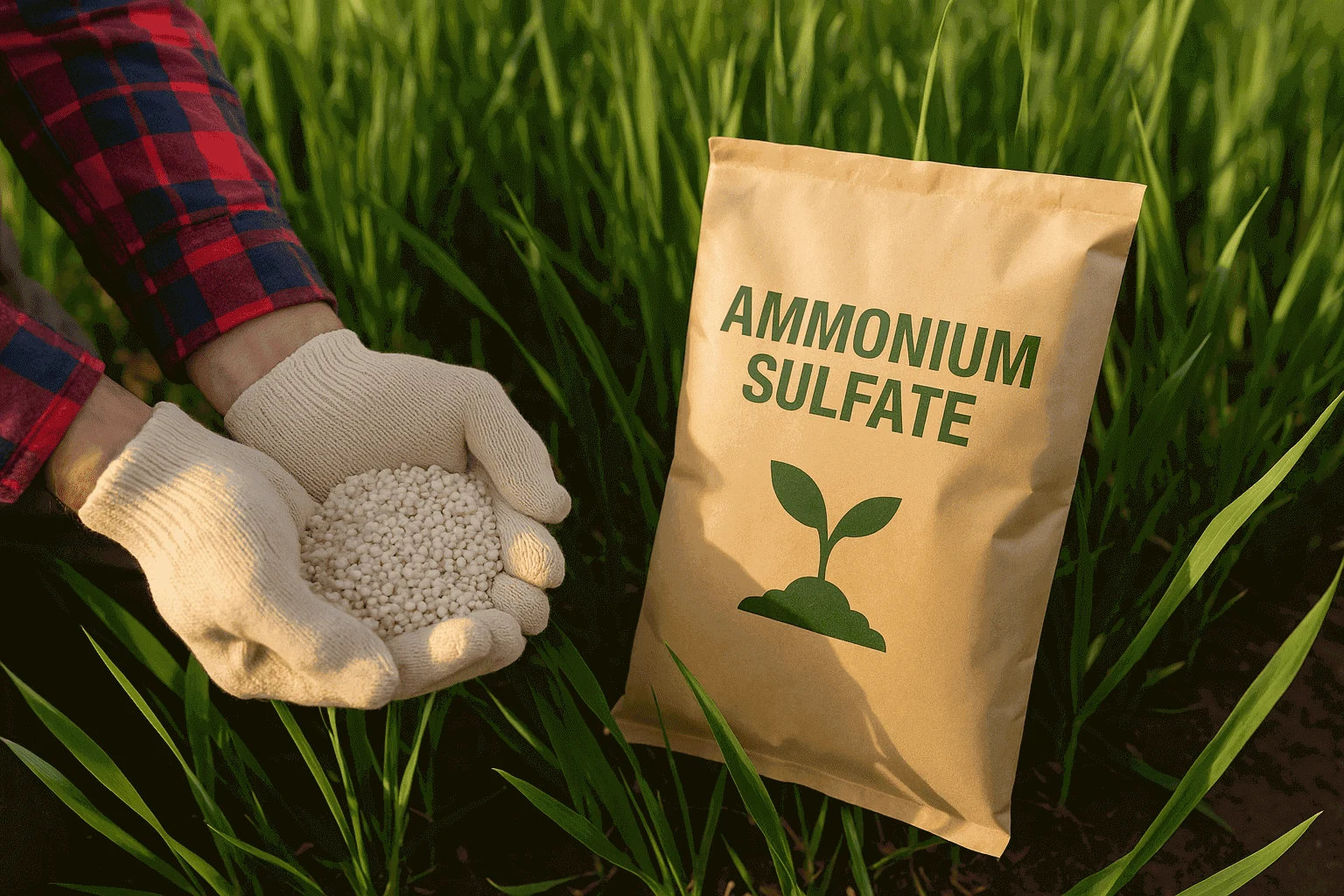Ammonium Sulfate Usage Instructions: A Comprehensive and Optimized Guide for Plant Growth
 Why Following Ammonium Sulfate Usage Instructions Is the Key to Agricultural Success in 2025
Why Following Ammonium Sulfate Usage Instructions Is the Key to Agricultural Success in 2025
Under the warm, shining sun, many farmers and gardeners in Iran are planning for the upcoming planting season. Among them, the Ammonium Sulfate Usage Instructions by Ammonium Sulfate Brand serve as a vital guide for using this powerful chemical fertilizer, playing a central role in boosting plant productivity and health.
This fertilizer, with its rich composition of 21% nitrogen and 24% sulfur, is not only a source of nutrients but also a transformative agent that balances soil pH, improves micronutrient uptake, and maximizes plant growth in 2025.
But the question is: how can we make the most of this agricultural treasure by strictly following the ammonium sulfate usage instructions, especially amid upcoming climate challenges?
The answer lies in smart and comprehensive planning. Ignoring these instructions can lead to problems such as soil acidification, nutrient deficiencies, or even crop failure—issues that threaten agriculture this year.
Ammonium Sulfate Usage Instructions
Using Ammonium Sulfate fertilizer is like playing a strategic game. It requires careful adherence to usage instructions, knowledge of the soil, and understanding of the plant’s needs—especially in 2025, when nature presents a new challenge every day! Let’s go step by step and enjoy this journey.
Correct Dosage According to Usage Instructions
How to adjust the dosage based on plant type?
The dosage of Ammonium Sulfate is like a recipe for a delicious dish: it must match the plant type and its growth stage.
Pistachios: 500 g to 1 kg per tree during the growing season is sufficient. Young trees (1–3 years) require 300–500 g, while mature trees (over 10 years) may need up to 1.5 kg for optimal fruit development.
Wheat: 200–400 kg per hectare, applied smartly in splits.
Tomatoes: 2–5% solution (20–50 g per liter of water).
Pomegranates: 1–2 kg per tree.
Canola: 250–350 kg per hectare.
Following the instructions carefully ensures plants respond well to fertilization.
Soil Testing: The Golden Key
Before applying fertilizer, inspect your soil like a doctor! Testing pH, nitrogen, and sulfur levels is crucial, especially in 2025 when soils can behave unpredictably.
If pH is 6–7, standard dosage suffices.
In alkaline soils (above 7.5, e.g., Isfahan), increase dosage by 20% to release iron and zinc.
Use a soil test kit or lab to monitor soil like a detective. If nitrogen is below 0.1%, add 50 g per square meter to keep plants healthy.
Beware of Overdosage: Risks Highlighted by Instructions
Overuse is like eating too much chocolate cake: tasty but risky! Excessive dosage lowers soil pH below 5.5 and stresses roots, especially in sandy soils and during 2025’s drought conditions.
Maximum: 600 kg per hectare unless mixed with compost for extra soil strength.
Follow the instructions to keep your soil healthy and productive.
Timing According to Usage Instructions: Sync with Nature
Spring – The Start of a New Adventure
Spring is like the first page of an exciting book. Plants wake up and demand nitrogen!
Pistachios: mid-March to late April, start with 30% of the total dose.
Wheat: early April, 30% dose to encourage leaf growth.
Summer – Peak Growth Phase
Summer is the season of flowering and fruiting.
Apply 40% of the dose early morning or late afternoon.
Tomatoes flower, and wheat forms grains. Follow instructions to protect plants from heat stress.
Autumn – Preparing for Winter Rest
Autumn is a time of rest.
Apply 30% of the dose in addition to 50% of spring’s application to prepare pomegranates for winter.
Regional Adaptation: Flexible Usage
In Khuzestan, focus on autumn.
In Kurdistan, spring timing depends heavily on weather.
Check rainfall and temperature to maximize effectiveness following usage instructions.
Safety Guidelines: Protect Everyone
Equipment – Gear up!
Wear gloves, masks, and long clothing like a knight to stay safe while applying fertilizer. Wash hands afterward—health comes first!
Waste Disposal – Protect the Environment
Dispose of leftover fertilizer in sealed bags to prevent water contamination. Be an environmental hero!
Respect Nature
Avoid applying near rivers to keep ecosystems healthy. Sustainability is the goal!
Reference Table: Ammonium Sulfate Dosage
| Crop | Recommended Dose | Timing | Tips |
|---|---|---|---|
| Pistachios | 500 g – 1 kg/tree | Spring, Summer | Test soil pH |
| Wheat | 200–400 kg/ha | Spring, Summer | Split application |
| Tomato | 2–5% solution | Spring, Summer | Apply early morning |
| Pomegranate | 1–2 kg/tree | Spring, Autumn | Gentle irrigation |
| Canola | 250–350 kg/ha | Spring, Summer | Check wind conditions |
Field Stories: Real Experiences
Rafsanjan Pistachio Farm: 700 g per tree increased yield by 30%, but 1 kg caused soil acidification.
Hamedan Wheat Farm: 250 kg split application raised grain protein by 1.5%.
These cases show how crucial following usage instructions is.
Professional Tips: Shine with Ammonium Sulfate
Organic Fertilizer – Hidden Power
Mixing with compost enhances effectiveness by up to 30% and strengthens soil like a superhero. Try this magical combination following instructions.
Long-Term Benefits
Maintains soil moisture during dry summers (2025).
Reduces costs over time.
Technology in Support of Fertilizer Usage
Smart Growth Monitoring
Track your plants like a coach using agricultural apps.
Align data with usage instructions for optimal results.
Data Analysis
Plan fertilization in sync with 2025 weather conditions.
Stay one step ahead of nature!
Light Autumn Strategy
Reduce Dose in Autumn
Prevent nutrient leaching due to rain.
Prepare soil for winter while maintaining balance.
Use Soil Sensors
Sensors report moisture and nutrients like tiny spies.
Optimize timing and water usage.
Future Tech
In 2025, these tools turn you into a modern, smart, and successful farmer.
Shine in 2025 with Ammonium Sulfate Usage Instructions!
Follow the usage instructions to maximize your farm’s potential:
Pistachios explode with spring nutrition.
Wheat grows strong and powerful in summer.
Tomatoes bloom with summer feeding.
Pomegranates shine in autumn.
Canola reaches its peak in spring.
For more information, visit Ammonium Sulfate Brand, contact our experts, or place your order online. Make 2025 your year of agricultural success! Share your success story and join us in sparking an agricultural revolution.

 Why Following Ammonium Sulfate Usage Instructions Is the Key to Agricultural Success in 2025
Why Following Ammonium Sulfate Usage Instructions Is the Key to Agricultural Success in 2025
